Today Current Affairs: 29th November 2022 for UPSC IAS exams, State PSC exams, SSC CGL, State SSC, RRB, Railways, Banking Exam & IBPS, etc
Table of Contents
Global Snow Leopard Ecosystem Protection Program:

Indian scientists recently received international award on behalf of snow leopard conservation alliance.
- Indian snow leopard experts received the Madrid-based BBVA Foundation’s Worldwide Biodiversity Conservation Award on behalf of a 12-nation intergovernmental alliance -The Global Snow Leopard Ecosystem Protection Program (GSLEP).
- The GSLEP is a first-of-its-kind intergovernmental alliance for the conservation of the snow leopard and its unique ecosystem.
- It is led by the environment ministers of 12 countries in Asia that form the home range of the snow leopard.
- These are Afghanistan, Bhutan, China, India, Kazakhstan, Kyrgyzstan, Mongolia, Nepal, Pakistan, Russia, Tajikistan and Uzbekistan.
- The total range spans two million square kilometres.
- The GSLEP Program’s secretariat is based in Bishkek, and is hosted by the Ministry of Natural Resources, Ecology and Technical Supervision of the Kyrgyz Republic.
- GSLEP was created in 2013 when officials, politicians and conservationists arrived at a common conservation strategy enshrined in the Bishkek Declaration (2013) to cooperate in the conservation of this species and its habitat.
First Woman President Of The Indian Olympic Association:
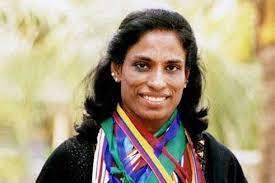
PT Usha is set to become the first woman President of the Indian Olympic Association (IOA). She will also become the first Olympian and first international medallist to head the IOA in its 95-year-old history.
- The Indian Olympic Association is the governing body for the Olympic Movement and the Commonwealth Games in India.
- As an affiliated member of the International Olympic Committee (IOC), Commonwealth Games Federation (CGF), Olympic Council of Asia (OCA) and Association of National Olympic Committees (ANOC), the IOA administers various aspects of sports governance and athletes’ welfare in the country.
- In this regard, the IOA oversees the representation of athletes or teams participating in the Olympic Games, Commonwealth Games, Asian Games and other international multi-sport competitions of IOC, CGF, OCA and ANOC.
- The Indian Olympic Association is recognised by the Ministry of Youth Affairs and Sports.
- The IOA was established in the year 1927 with Sir Dorabji Tata and Dr. A.G. Noehren as the Founding President and Secretary General respectively. It is registered as a Non-Profit Organisation under the Societies Registration Act of 1860.
- The Indian Olympic Association is currently governed by a 32-member Executive Council, headed by President.
- The election for the Executive Council is held once in every 4 years.
China-Indian Ocean Region Forum:
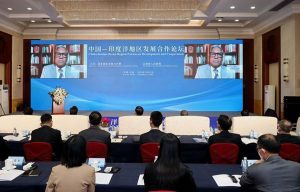
The China International Development Cooperation Agency (CIDCA), held a meeting of the China-Indian Ocean Region Forum in which 19 countries took part but not India.
Highlights of the Meet:
- Theme: Shared Development: Theory and Practice from the Perspective of the Blue Economy.
- Participating Countries: Indonesia, Pakistan, Myanmar, Sri Lanka, Bangladesh, Maldives, Nepal, Afghanistan, Iran, Oman, South Africa, Kenya, Mozambique, Tanzania, Seychelles, Madagascar, Mauritius, Djibouti, Australia and representatives of 3 international organisations were present.
- India was reportedly not invited.
- Marine Disaster Prevention and Mitigation Cooperation Mechanism:
- China proposed to establish a marine disaster prevention and mitigation cooperation mechanism between China and countries in the Indian Ocean region.
- China expressed its willingness to provide necessary financial, material, and technical support to countries in need.
Bluebugging:

Cybersecurity experts recently noted that apps that let users connect smartphones or laptops to wireless earplugs can record conversations, and are vulnerable to hacks.
- It is a form of hacking that lets attackers access a device through its discoverable Bluetooth connection.
- Once a device or phone is bluebugged, a hacker can listen to the calls, read and send messages and steal and modify contacts.
- It started out as a threat for laptops with Bluetooth capability.
- Later hackers used the technique to target mobile phones and other devices.
- Bluebugging attacks work by exploiting Bluetooth-enabled devices.
- The device’s Bluetooth must be in discoverable mode, which is the default setting on most devices.
- The hacker then tries to pair with the device via Bluetooth.
- Once a connection is established, hackers can use brute force attacks to bypass authentication.
- They can install malware in the compromised device to gain unauthorised access to it.
- Bluebugging can happen whenever a Bluetooth enabled device is within a 10-metre radius of the hacker.
- However, according to a blog by VPN service provider NordVPN, hackers can use booster antennas to widen the attack range.
- Any Bluetooth-enabled device can be bluebugged.
- Wireless earbuds are susceptible to such hacks.
- Apps that enable users to connect to their TWS (True Wireless Stereo) devices or earbuds can record conversations.
- The apps of these TWS devices can record conversations.
- Once hacked, the attacker can make and listen to calls, read and send messages, and modify or steal your contacts.
Dhamma Dipa International Buddhist University:
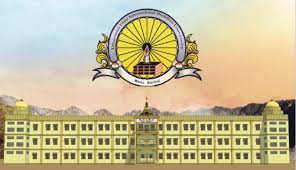
Shakya Gasan, chief monk of the World Buddhist Pope Association of South Korea, will lay the foundation stone for the International Buddhist University at Manu Bankul in Sabroom of South Tripura district on November 29.
- The Dhamma Dipa International Buddhist University (DDIBU) is expected to become the first Buddhist-run university in India to offer Buddhist education along with courses in other disciplines of modern education as well.
- This university will set a precedent in the history of Indian-Buddhism in promoting and reviving Buddhist culture in India, the birthplace of Buddhism.
- It will be the first Buddhist University in India to be headed by Buddhist monastics and run and monitored by Buddhists.
- The word, Dhammadipa, describes both a core principle and a guiding force, which seeks the light of Dharma, its international scope and measure.
- The University contributes to the highest level of knowledge and education.
- DD IBU hopes to better engage the contemporary world through the insight and depth of Buddhist words.
- At the same time, it is keen to prepare students and youth with knowledge and skills, so that they can live healthy, peaceful and contented lives, able to lead the way of life.
- Students from 31 countries will get a chance to study as well as carry out research on Buddhist literature, culture and tradition in the proposed varsity.
Downgrades Status Of Southern White Rhinos:
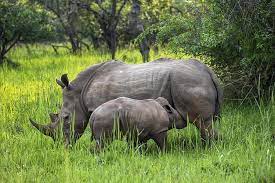
In a major hurdle to Africa’s rhino conservation efforts, CITES COP19 has recently accepted the proposal to downgrade the status of southern white rhinos from Appendix I to Appendix II. The southern white rhino is one of the two subspecies of white rhinos, with the other being the northern white rhino. It is one of the largest and heaviest animals in the world.
- A proposal by Namibia and Botswana to transfer the southern white rhinos from Appendix I to Appendix II allows the trade of live animals for conservation purposes and hunting trophies only.
- Animals in Appendix II may not necessarily be on the brink of extinction but the trade of such species is regulated to protect their existence.
- This amendment is restricted to the downgrading of live animals only for in situ conservation purposes.
- This decision does not resume the international trade in rhino horn, which was proposed by Eswatini (formerly known as Swaziland).
- However, the downgrading of the classification exposes these vulnerable species to the threats posed by smuggling channels in countries where there are rampant activities of illegal poaching.
- It allows white rhinos to be relocated over long distances from one country to another.
Har Ghar Gangajal Scheme : Bihar
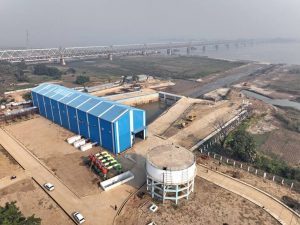
The Bihar Government is set to launch the Har Ghar Gangajal project to deliver water from Ganga river to the dry areas in the state that do not lie along the course of the river.
- Under the Har Ghar Gangajal scheme, the surplus water from the Ganga river will be collected during the monsoon season to be treated, stored and piped to Rajgir, Gaya, and Bodhgaya the regions that have long relied on tankers from nearby districts for drinking water source during the dry season.
Har Ghar Gangajal scheme:
- It will be launched as part of the state government’s Jal, Jeevan, Hariyali scheme.
- The first phase of the project will be implemented with an outlay of Rs.4,000 crore.
- Under this phase, large pumps will lift Ganga water from Hathidah, close to Mokama, to supply water for to some 7.5 lakh homes in Rajgir, Bodhgaya, and Gaya.
- The collected water will initially be stored in reservoirs in Rajgir and Gaya, which will then be channeled to three treatment-and-purification plants.
- The treated water will be supplied to the public via pipes from Hathidah.
- The project will make use of existing, renovated and new water connections to reach every beneficiary household.
- The second phase of the project, which is expected to be launched in 2023, will be provide the Ganga water to Nawada.
- Under this scheme, every individual beneficiary will receive 135 litres (two large buckets) of Ganga water every day to be used for drinking and domestic purposes.
The Plastic Life-Cycle : Report

The report – The Plastic Life-Cycle – was released by the Delhi-based think-tank, Centre for Science and Environment (CSE). It was released during the one day national conclave on India Habitat Centre in November 22
Key findings of the report:
- India has not been able to effectively implement policies countering plastic pollution.
- The new report held that, unless the entire lifecycle of plastic from the source to disposal is not recognized as the root cause of the plastic pollution, the issue will remain.
- The currently policies only focus on downstream issues related to collection, management, diversion and disposal of plastic waste.
- While the 2016 rules called for the phasing out of all non-recyclable multi-layered plastic (MLP), it was amended in 2018 to halt the phasing out of the MLPs.
- It stated that only those MLPs that are “non-recyclable or non-energy recoverable or with no alternate use” must be phased out.
- While the 2021 policy banned the production, sale and the use of single-use plastic after July 1, 2022, the February 2022 amendment provided exemption of this rule for the plastic packaging, which accounts for more than half of the plastic wastes generated in India.
- The exemption was provided through the extended producer responsibility (EPR) on producers, importers, brand owners and plastic waste processors.
- The report found huge limitations in terms of clarity, making EPR difficult to be implemented.
- It does not provide for such data-based self-declaration and mechanisms that can enable the public to cross-check the data accuracy.
- Producers, Importers and Brand Owners (PIBO) were given the 25 per cent collection target for the plastic they put on the market for 2021-22.
- However, the Central Pollution Control Board (CPCB) has not yet updated the performance of these companies for 2021-22.
- For the fiscal year, 2022-23, the EPR target for companies has been set as 70 per cent.




